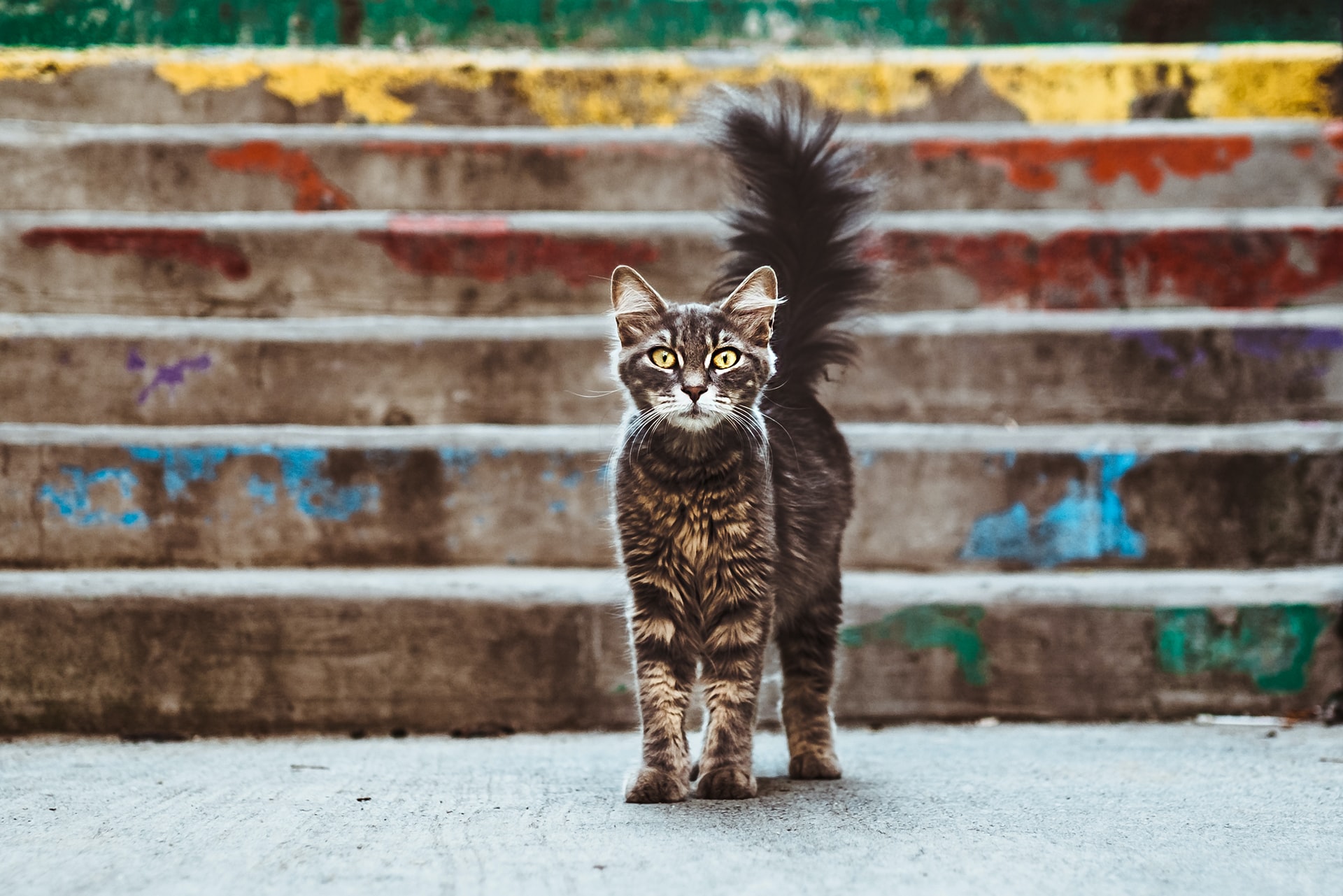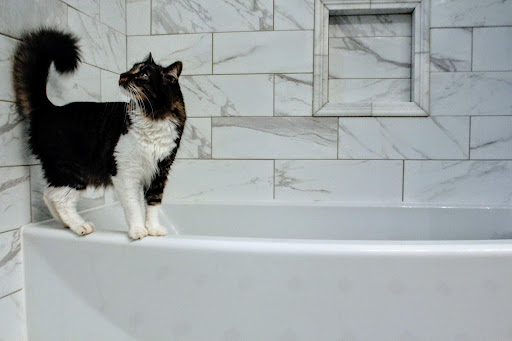
Stress is something familiar we all experience. If you're a cat owner, playing or cuddling up with your kitty can do the trick of calming you down. But did you know that just like us, cats can also experience stress? New environments, travel, or stressful situations can make them feel at the edge, making their behaviour change and adversely affect their health.
In dealing with a stressed cat, there are many methods or solutions one can choose from. And with the growing popularity of cannabidiol or CBD, some cat owners are encouraged to use CBD for their feline. But how exactly does this work?
Why Do Cats Get Stressed?
Cats can also experience stress. It also triggers their fight or flight response, or an adverse reaction, especially when they experience chronic stress or anxiety that lasts for a long time. This is why it is crucial to reduce and manage stress in your cat.
Chronic stress is what you should look out for the most in your cat. It can cause a change in their sleeping patterns, and even on their appetite, maybe even have low energy or withdraw from their owners completely.
Here are the most common reasons cats get stressed:
#1 Addition or Removal of People or Pets
Cats can be sensitive to change. And it can stress them off when a member of the household, whether human or animal, leaves. They can also be stressed when someone they know enters the home, especially if a new pet is introduced.
#2 Changes at Home
Moving to a new house or frequently rearranging the furniture may cause stress in your cats. According to experts, cats are sensitive to their environment, and changes like these at your home can make your cat feel like they have no control.
#3 Boredom
Boredom can be a problem for your pet cat. The lack of stimulus or outlet to release their energy can cause them stress.
#4 Overstimulation
Aside from boredom, overstimulation can also cause stress on your cat. Since cats have sensitive skin and sensitive hearing, excessive touching and too much noise can stress your feline out. Even simple things such as loud music and TV, people shouting, and dogs barking might be stressful.
#5 Temperature or Seasonal Changes
Your cat is in tune with the weather, even if they spend most of their time indoors. A change in temperature and seasons can significantly affect your cat's stress levels.
#6 Too Much Competition
This is more applicable to households that have multiple cats. They may undergo stress when cats feel like they need to compete for resources such as water, food, or time with their humans.
Signs That Your Cat May be Stressed
Humans and cats are alike in experiencing stress, anxiety, and fear. But unlike us, most cats hide their inner agitation. Prolonged or chronic stress can cause adverse effects on their health. Patricia B. McConnell, Ph.D., and a certified animal behaviourist explain that chronic stress can "suppress the immune response, causing a broad range of illnesses.
The following are possible signs that your cat may be stressed:
#1 Isolation
Being distant may be second nature to most cats. But your cat should not constantly hide from you or anyone in the house.
#2 Excessive Grooming
According to PetMD, cats can be meticulous when it comes to grooming. But if your cat is licking themselves too much, causing baldness, it can be a sign of distress.
#3 Loss of Appetite
Unlike some humans, cats do not go on diets or have fasting. If you see your feline losing interest in their meal or stops eating at all, it may be a sign of stress. It is vital to consult a veterinarian if this is the case.
#4 Aggressive to Other Animals
Aggressive actions or fights with other pets inside your household or other animals, in particular, can be a symptom that your cat is sick or stressed. Have your cat checked by a veterinarian before it gets worse.
#5 Aggressive Towards People
A stressed cat can also show signs of aggression towards people, even to its owners. They may start to hiss and attempt to scratch as a sign of tension and discomfort, even towards you and the people within the household.
#6 Scratching Too Much
Scratching too much from your cat can indicate a health or behavioural issue. Excessive scratching can also be due to your cat being bored or having less exercise in your household.
#7 Excessive Vocalization
Unusually long outbursts of panicked meows - especially if your cat is not that talkative - can be a symptom that your cat is distressed.
#8 Physical Symptoms
The following physical symptoms may indicate that your cat is stressed:
- Vomiting
- Diarrhea
- Runny eyes and nose
- Eating non-food items
- Excessive Sleeping
- Sudden weight gain/ loss
#9 Behavioral Symptoms
Here are behavioural symptoms that may indicate stress in your cat:
- Littering outside their litter box.
- Spraying urine on items or furniture.
- Constantly jumps or reacts to sudden movements or sounds.
- Excessive pacing around the room or house
What to Do When Your Cat is Stressed
One way to help your cat destress is to find the cause of their tension. Finding the reason can help you alleviate or remove the stress or anxiety that they feel. Simple ways in alleviating their stress can include having extra bowls of water and food, no longer hosting loud social gatherings at your place, or having a safe space for your cat to be in.
Natural remedies may also help in reducing your cat's stress or anxiety. A popular natural treatment that you can use is cannabidiol or CBD. This compound is already known to alleviate stress and anxiety, and it may have the same effects on your feline.
A study has discovered that CBD can help both dogs and cats who have stress and disorders related to anxiety, cancer, seizures, and pain. This can be used for your cat without any harmful side effects as well. You can also ask a veterinarian for more information on using CBD for your pet, the proper dosage, and the best way to give it to your cat.
In other ways, playing soft or classical music can help, according to WellnessPetFood.com. If uncertain of what music to play, there are downloadable music and CDs specifically for cats that help their stress or anxiety ease away.
If you cannot alleviate the stress that your cat has, the next option would be to consult a veterinarian for professional help. They can even refer your pet to an animal behaviourist that can help uncover why your cat is stressed and develop a treatment to alleviate the tension that your cat feels.
Conclusion
There may be many reasons your cat can get stressed and several methods to reduce it. The study of the benefits of CBD is still ongoing, so there is not much data to provide thus far. Rest assured that using CBD for your stressed cat is safe and has no significant side effects as it is a natural remedy.
And even if there are a lot of methods to reduce stress on your feline, spending some quality time with them could be enough. You may not be aware, but sometimes, you are the key for your lovely cat to feel less tension. If they are the cuddly type, it would be great to bond and have close contact with them or anyone else in the household. Even as simple as having them nearby when you work or study may be enough for your pet to feel better and relaxed.




